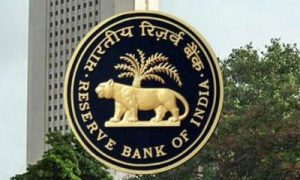Gold Loan EMIs: Following RBI’s identification of gaps in gold loan disbursements by banks and lending institutions, the sector is looking to start monthly amortisation schemes. The regulated bodies may require borrowers to start interest and principal payments through EMIs immediately upon loan approval. Additionally, lenders are considering term loan alternatives for gold-backed lending.
Read More: Fixed Deposits: 7 banks offering more than 8% return on fixed deposits
On September 30, the RBI highlighted irregularities in lending against gold ornaments and jewellery. The central bank discovered issues in loan sourcing, valuation, diligence procedures, end-use monitoring, auction transparency, LTV ratio oversight, and risk weight application. The practice of rolling over gold loans with partial payments was deemed inadequate.
“The regulator’s diktat is clear, it wants lenders to examine the payment capacity of borrowers and not solely rely on the collateral,” a senior banking official told ET. “It is also unhappy with allowing rollover of such loans with part payment, which could lead to some delinquencies when repayments come up. We are now structuring monthly payment options for gold loans.”
Currently, gold loan providers offer bullet repayment options, allowing borrowers to settle the entire amount at tenure end without EMI commitments.
Alternatively, borrowers can make flexible partial repayments when funds are available, settling the complete principal and interest before the loan matures.
This directive follows substantial growth in gold loan portfolios across banks and NBFCs recently. Crisil reports that bank-issued retail loans against gold jewellery grew 37% between April and August, coinciding with rising gold prices. Gold-loan-focused NBFCs recorded 11% growth in assets under management in Q1 FY25.
Read More: NPS Death Claims: Steps to take in absence of a valid nomination
“The sector faces underlying challenges as the continuous build-up of leverage raises concerns about borrowers’ ability to service debt, especially given limited visibility into their cash flows or for that matter the end use of funds,” said Prakash Agarwal, partner at consulting firm Gefion Capital.
“A potential correction in gold prices could pose significant risks, as declining collateral values might create refinancing challenges and strain repayment capacity. Lenders must remain vigilant, balancing growth with prudent risk management to mitigate potential vulnerabilities.”
As of September 30, banks’ jewellery loan disbursements reached Rs 1.4 lakh crore, showing 51% growth compared to 14.6% in the previous year.
Recent quarters have seen substantial growth in gold loans, supported by increased gold prices enabling additional top-ups on existing collateral. Limited access to unsecured and microfinance loans drove more borrowers towards gold loans. However, RBI’s recent review highlighting inconsistencies and emphasis on stronger controls may moderate this growth.





































